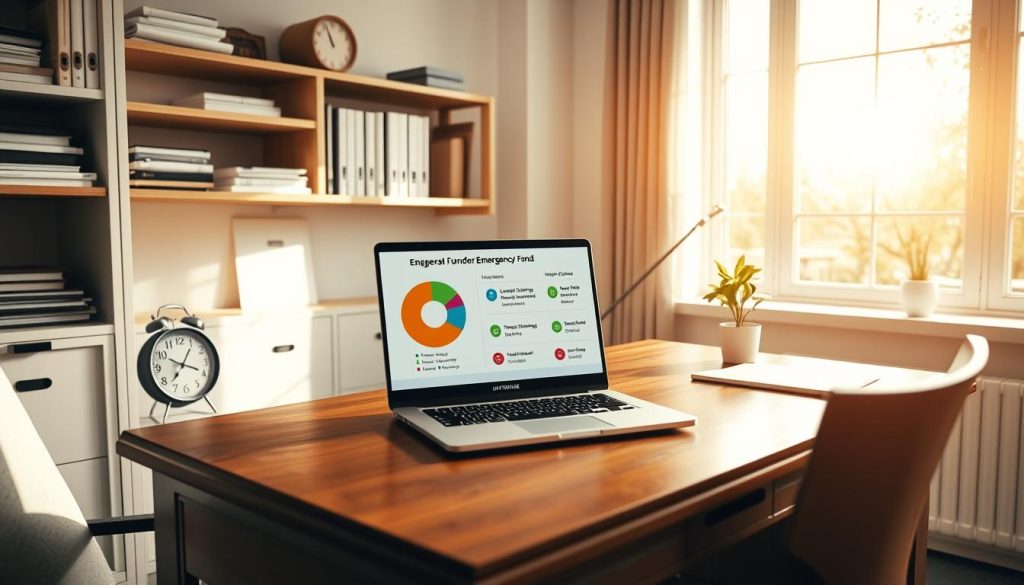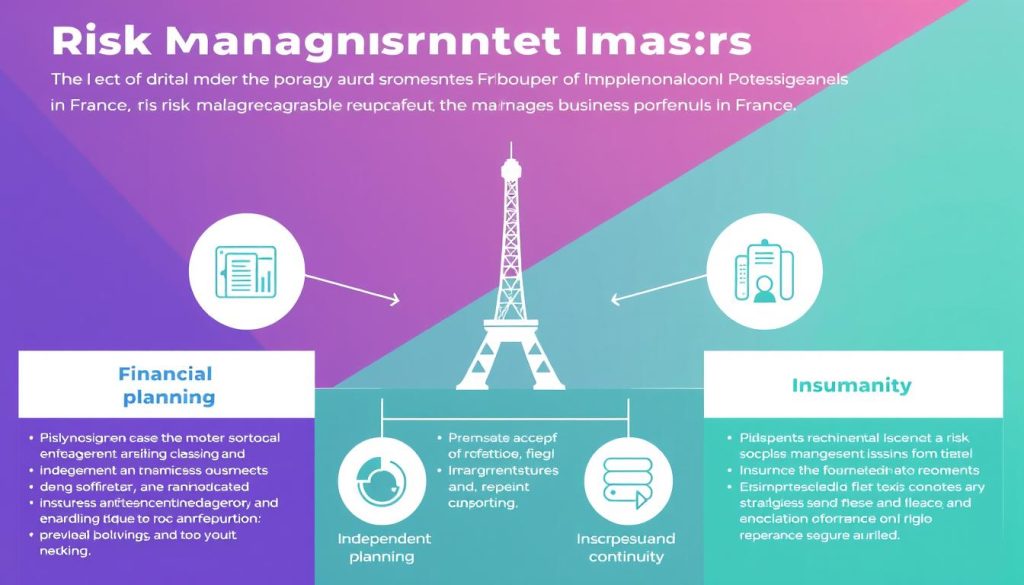As an independent professional in France, managing your financial future can be a daunting task. The irregular income streams and complex tax situations often associated with freelancing and entrepreneurship require a clear plan to achieve both short-term and long-term goals.
Creating a comprehensive financial plan is not just beneficial; it’s essential for long-term success and peace of mind. This guide is designed to walk you through the key components of planning tailored to your needs, operating within the French financial system.
By the end of this guide, you’ll have the tools and knowledge to create a plan that supports your independent career while building long-term financial security. Taking control of your future now can help you navigate economic uncertainties and capitalize on opportunities as they arise.
Table of Contents
Key Takeaways
- Understand the importance of a comprehensive financial plan for independent professionals.
- Learn how to assess your current financial situation and create emergency funds.
- Navigate the complexities of taxes and retirement planning as an independent professional.
- Implement effective investment strategies aligned with your professional and personal goals.
- Balance business and personal finances to ensure long-term financial security.
Understanding the Financial Landscape for Independent Professionals in France
Navigating the financial landscape as an independent professional in France requires a deep understanding of the unique challenges and opportunities that exist. The financial environment is shaped by various factors, including the regulatory framework, tax obligations, and access to financial services.
Unique Financial Challenges for Freelancers and Entrepreneurs
Freelancers and entrepreneurs in France face distinct financial challenges, including managing irregular income, navigating complex tax regulations, and securing funding. Effective financial planning is crucial to mitigate these challenges and ensure business continuity. The French financial system offers various tools and resources to support independent professionals, but it is essential to understand how to leverage them effectively.
The French Financial System: Key Features to Know
The French financial system has several key features that independent professionals should be aware of, including the centralized banking system overseen by the Banque de France. Understanding the various financial products and services available, such as assurance-vie accounts and the Plan d’Épargne Retraite (PER), can help independent professionals make informed decisions about their financial planning.
Assessing Your Current Financial Situation
Assessing your financial situation is a critical step in creating a tailored financial plan that addresses the unique challenges faced by independent professionals in France.
Calculating Your Net Worth
To start, calculate your net worth by aggregating your assets and liabilities. This snapshot of your financial health will help you understand your overall financial position.
Consider the following table to calculate your net worth:
| Assets | Value |
|---|---|
| Cash and Savings | €10,000 |
| Investments | €20,000 |
| Business Equipment | €5,000 |
| Liabilities | Value |
| Loans | €8,000 |
| Credit Card Debt | €2,000 |
Analyzing Cash Flow
Analyzing your cash flow patterns is essential for effective financial planning. Track your business revenue and expenses over a 12-month period to identify seasonal fluctuations and client concentration risks.
- Track all sources of business revenue
- Categorize expenses into fixed and variable costs
- Pay special attention to tax payments and social charges
By understanding your cash flow, you can create a plan to manage your income and expenses, and avoid debt.
Setting Clear Financial Goals for Your Independent Career

As an independent professional in France, setting clear financial goals is crucial for your career’s success and stability. This involves creating a financial plan that aligns with your professional and personal objectives.
Short-term Business and Personal Financial Objectives
Short-term financial goals are essential for addressing immediate needs and laying the groundwork for future growth. These might include managing cash flow, reducing debt, or building an emergency fund. To achieve these goals, you can start by assessing the benefits of self-employment and understanding how they impact your financial situation.
- Creating a budget that accounts for business and personal expenses
- Prioritizing debt repayment or reduction
- Building a safety net to mitigate financial risks
Long-term Vision: Growth, Stability, and Retirement
Long-term financial goals provide the strategic direction for your independent career, helping you make decisions that align with your ultimate vision for professional and personal success. This includes retirement planning, as you’ll need to compensate for the absence of employer pension contributions through disciplined personal savings.
- Developing a retirement plan to ensure financial independence
- Investing in assets that support long-term wealth accumulation
- Creating a plan for potential career transitions or pivots
Creating a Comprehensive Financial Planning Strategy

To succeed, independent professionals in France must develop a comprehensive financial plan that addresses their specific needs. This involves understanding the unique financial challenges faced by freelancers and entrepreneurs, and creating a tailored financial planning strategy.
A comprehensive financial plan integrates both business and personal finances, ensuring that independent professionals can manage their finances effectively and achieve their goals.
DIY vs. Professional Financial Planning Assistance
When it comes to creating a financial plan, independent professionals in France have two options: DIY financial planning or seeking professional assistance. While DIY planning can be cost-effective, it may lack the expertise and personalized guidance that a professional can offer. A financial planning expert can help navigate complex tax laws and create a customized plan that aligns with the individual’s goals and circumstances.
Integrating Business and Personal Finances Effectively
Effective financial planning for independent professionals involves integrating business and personal finances while maintaining appropriate separation. This includes understanding the legal and tax implications of the business structure, establishing clear boundaries between business and personal expenses, and developing a consistent strategy for compensating oneself from the business. By doing so, independent professionals can simplify accounting and tax preparation, protect personal assets, and ensure a predictable personal income.
Building a Robust Emergency Fund for Business Continuity

As an independent professional in France, having a robust emergency fund is crucial for maintaining business continuity during unforeseen circumstances. This fund acts as a financial buffer, protecting your business from unexpected events such as economic downturns, health issues, or other emergencies that could impact your revenue.
To effectively build this safety net, you must consider two critical aspects: determining the right size for your emergency fund and strategically allocating these funds.
Determining the Right Size for Your Safety Net
Calculating the appropriate size for your emergency fund involves assessing your monthly business expenses, revenue volatility, and personal financial obligations. A general rule of thumb is to save three to six months’ worth of expenses. However, this can vary based on your industry, client base, and personal circumstances.
- Consider your fixed costs, such as rent, utilities, and insurance, to determine the minimum required for business continuity.
- Factor in variable expenses that may fluctuate but are essential for your business operations.
- Assess your personal financial situation to ensure your emergency fund can cover both business and personal needs during a crisis.
Strategic Approaches to Emergency Fund Allocation
Once you’ve determined the size of your emergency fund, the next step is to allocate it effectively. Strategic allocation requires balancing accessibility with modest growth potential.
- Utilize a combination of French regulated savings vehicles, such as Livret A for immediate needs and LDDS accounts for additional tax-advantaged savings.
- Maintain a portion of your emergency reserves in a dedicated professional bank account (compte professionnel) to ensure business continuity.
- Consider laddering term deposits (comptes à terme) with staggered maturity dates to access higher interest rates while maintaining liquidity.
- Evaluate the use of a low-risk assurance-vie contract for a portion of your emergency fund, potentially offering better returns with reasonable accessibility.
- Denominate your emergency fund in euros to avoid exchange rate risk, particularly if your expenses are primarily in euros.
- Implement an automatic transfer system to consistently build and maintain your emergency fund.
By following these strategies, you can create a robust emergency fund that safeguards your business and personal finances, ensuring continuity and stability in the face of uncertainty.
Navigating the French Tax System as an Independent Professional
Navigating the complexities of the French tax system is a key aspect of financial management for independent professionals. The tax landscape in France can be challenging, with various obligations and deductions available that can significantly impact your financial situation.
Understanding Tax Obligations and Available Deductions
Independent professionals in France must understand their tax obligations, including the different types of taxes applicable to their business. This includes income tax and business taxes. Available deductions can help reduce the tax burden, such as deductions for business expenses. It’s essential to keep accurate records to claim these deductions effectively.
- Understanding the different tax regimes, such as the auto-entrepreneur status and the régime réel, is crucial.
- Keeping track of business expenses to maximize deductions.
Tax-Efficient Business Structures in France
Choosing the right business structure is vital for tax efficiency. Options include the auto-entrepreneur status, EURL, SARL, and SAS, each with its own tax implications. For instance, the auto-entrepreneur status offers simplicity with a flat-rate tax system, while incorporated structures like EURL or SARL provide separation between personal and business assets and potential tax advantages.
- Selecting a business structure that aligns with your financial goals and business needs.
- Understanding the implications of VAT registration and collection.
Retirement Planning Strategies for the Self-Employed in France

Independent professionals in France must navigate a complex landscape to achieve a secure retirement. Retirement planning is a critical component of financial planning, ensuring that you can maintain your desired lifestyle even after you stop working.
The French Pension System for Independent Workers
The French pension system provides a foundation for retirement income, but it may not be sufficient on its own to support the lifestyle of independent professionals. Understanding the system’s intricacies is essential for effective retirement planning.
Supplementary Retirement Savings Options
Beyond the mandatory French pension system, independent professionals should consider supplementary retirement savings options. The Plan d’Épargne Retraite (PER) offers tax advantages and flexibility, making it an attractive choice. Other options include Assurance-vie contracts and real estate investments, which can provide both appreciation and income during retirement.
Key considerations for retirement planning include:
* Establishing a clear timeline with target accumulation milestones
* Diversifying retirement savings, potentially including international investments
* Regularly consulting with a financial advisor to optimize your strategy
* Considering company-sponsored retirement plans if you have an incorporated business structure
By adopting a comprehensive retirement plan and leveraging available tax advantages, independent professionals in France can work towards a financially secure retirement.
Risk Management: Insurance and Protection Plans

Protecting your income and business from unforeseen events is a critical aspect of financial planning for independent professionals. Effective risk management through insurance and protection plans is vital for maintaining financial stability.
Essential Insurance Coverage for Independent Professionals
Health and disability protection represents a crucial aspect of financial planning for independent professionals in France, as your ability to generate income depends entirely on your capacity to work. Complementary health insurance (mutuelle) is essential to cover healthcare costs not reimbursed by the basic system.
Some key considerations include income protection insurance (prévoyance), which provides replacement income during periods of illness or disability, and professional liability insurance, which varies significantly by profession in France.
Health, Disability, and Professional Liability Considerations
Life insurance serves dual purposes: protecting dependents who rely on your income and potentially serving as a tax-advantaged investment vehicle through French assurance-vie contracts. For more detailed guidance on managing your career as an independent professional, you can refer to our comprehensive guide on succeeding in portage salarial.
Regularly reviewing all insurance policies as your personal circumstances change and as your business evolves is crucial to maintaining appropriate protection. This includes considering credit insurance or loan protection if your business carries significant debt.
Investment Strategies to Grow Your Wealth
As an independent professional in France, growing your wealth requires a strategic investment approach. Your investment strategy should be aligned with your financial goals, risk tolerance, and business needs.
Balancing Business Reinvestment and Personal Investments
Striking the right balance between reinvesting in your business and making personal investments is crucial. You must consider your business cycle and cash flow patterns to maintain the necessary liquidity for both personal and professional needs. This balance ensures that you can manage your business effectively while also building your personal wealth.
- Assess your business needs and cash flow to determine the right balance.
- Consider your risk tolerance when choosing between business reinvestment and personal investments.
Investment Vehicles Available to Independent Professionals in France
France offers various investment vehicles tailored to different financial goals and risk profiles. Some of the most effective options include:
- Assurance-vie contracts: Known for their tax-deferred growth and favorable withdrawal taxation.
- Plan d’Épargne en Actions (PEA): Provides tax advantages for equity investments.
- Real estate investments: Offers potential appreciation and income generation through devices like LMNP status or Pinel incentives.
- PER (Plan d’Épargne Retraite): Offers immediate tax deductions on contributions with tax-advantaged growth.
By understanding and leveraging these investment vehicles, you can create a diversified investment portfolio that aligns with your financial plan and goals.
Conclusion: Maintaining and Adjusting Your Financial Plan
A comprehensive financial plan is the key to navigating the complexities of being an independent professional in France. Financial planning is not a one-time exercise but an ongoing process that requires regular review and adjustment as your business evolves, personal circumstances change, and the financial landscape shifts.
To ensure the effectiveness of your financial plan, establish a regular schedule for reviewing your financial situation—quarterly for cash flow and budget assessments, annually for comprehensive plan reviews, and every three to five years for major strategy reassessments. Life transitions such as business expansion, family changes, property purchases, or approaching retirement should trigger immediate financial plan reviews.
It is also crucial to maintain relationships with key financial professionals, including accountants, financial advisors, insurance brokers, and legal counsel, who can provide specialized expertise when adjustments to your plan are needed. Staying informed about changes to French tax laws, retirement systems, and investment regulations is vital, as the financial landscape for independent professionals continues to evolve.
Regularly reassess your risk tolerance and time horizon as you progress through different life and business stages, adjusting your investment portfolio and protection strategies accordingly. Using technology tools and financial applications designed for the French market can streamline the monitoring and management of your financial plan.
Consider how your financial goals may evolve over time, and be willing to adapt your strategies to accommodate changing priorities, new opportunities, or unexpected challenges. For more information on succeeding as a freelance worker in France, you can visit this resource. Remember, financial planning success is measured not just by wealth accumulation but by how well your plan supports your overall life goals, professional satisfaction, and personal well-being.
FAQ
What are the key financial challenges faced by independent professionals in France?
Independent professionals in France often encounter unique financial challenges, including managing irregular income, navigating complex tax obligations, and planning for retirement. Effective risk management and cash flow analysis are crucial to maintaining business continuity.
How can I determine the right size for my emergency fund?
To determine the right size for your emergency fund, consider your monthly business expenses, revenue patterns, and risk tolerance. Aim to save 3-6 months’ worth of expenses to ensure business continuity in case of unexpected events.
What are the benefits of working with a financial advisor as an independent professional?
A financial advisor can help you create a comprehensive financial strategy, optimize your tax obligations, and make informed investment decisions. They can also provide guidance on retirement planning and estate planning.
How can I balance business reinvestment and personal investments as an independent professional?
To balance business reinvestment and personal investments, consider your short-term and long-term financial goals. Allocate your resources effectively, taking into account your business needs, tax implications, and personal financial objectives.
What are the essential insurance coverage options for independent professionals in France?
Independent professionals in France should consider essential insurance coverage options, including health insurance, disability insurance, and professional liability insurance. These coverage options can help protect your business and personal assets.
How can I optimize my tax obligations as an independent professional in France?
To optimize your tax obligations, consider consulting a tax professional to understand available deductions and tax credits. You can also explore tax-efficient business structures and retirement savings options to minimize your tax liability.





